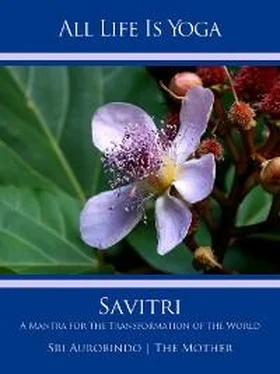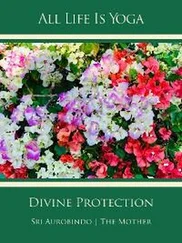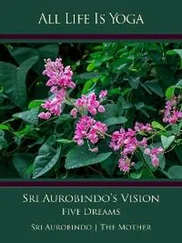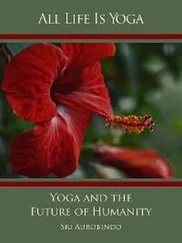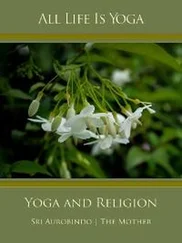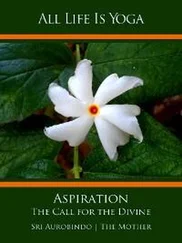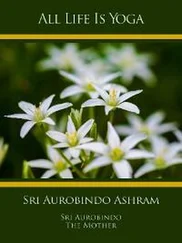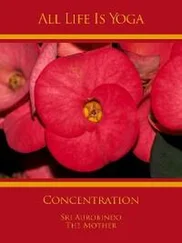It’s the same thing, by the way, with curses, or when one gets angry and says bad things to people. This can do them as much harm – more harm sometimes – than if you were to give them a slap. With very sensitive people it can put their stomach out of order or give them palpitation, because you put into it an evil force which has a power of destruction.
It is not at all ineffective to speak. Naturally it depends a great deal on each one’s inner power. People who have no strength and no consciousness can’t do very much – unless they employ material means. But to the extent that you are strong, especially when you have a powerful vital, you must have a great control on what you say, otherwise you can do much harm. Without wanting to, without knowing it; through ignorance.
*
Making the power of the word effective
Words of the Mother
It seems unnecessary to draw your attention to the quantity of useless words that are uttered each day; this evil is well known to all, although very few people think of remedying it.
But there are many other words which are spoken needlessly. That is to say, in the course of the day, we often have the opportunity of expressing a helpful wish by pronouncing one word or another, provided that we know how to put the appropriate thought behind the words.
But too often we lose this opportunity of drawing a beneficial mental atmosphere around the people we know and thus of truly helping them. It would be very useful to remedy this neglect.
To do this, we must refuse to allow our minds to remain in that state of vague and passive imprecision which is almost constant in most people.
To cure ourselves progressively of this somnolence, we can, when pronouncing a word, force ourselves to reflect upon its exact meaning, its true import, in order to make it fully effective.
*
The power of words comes from three different sources
Words of the Mother
In this regard, we can say that the active power of words comes from three different causes.
The first two lie in the word itself, which has become a battery of forces. The third lies in the fact of living integrally the deep thought expressed by the word when we pronounce it.
Naturally, if these three causes of effectiveness are combined, the power of the word is considerably enhanced.
1) There are certain words whose resonance in the physical world is the perfect vibratory materialisation of the more subtle vibration produced by the thought in its own domain. If we examine closely this similarity between the vibrations of thought and sound, we can discover the limited number of root syllables which express the most general ideas, and which are to be found in most spoken languages with an almost identical meaning. (This origin of language should not be confused with the origin of written languages, which are of an altogether different nature and correspond to different needs.)
2) There are other words which have been repeated in certain circumstances for hundreds of years and which are instinct with the mental forces of all those who have pronounced them. They are true batteries of energy.
3) Finally, there are words which assume an immediate value when they are pronounced, as a result of the living thought of the one who pronounces them.
To illustrate what I have just said with an example, here is a very powerful word, for it can combine the qualities of all three categories: it is the Sanskrit word “AUM”.
It is used in India to express the divine Immanence. There, it is associated with every meditation, every contemplation, every yogic practice.
More than any other sound, this sound “AUM” gives rise to a feeling of peace, of serenity, of eternity.
Moreover, this word is instinct with the mental forces which for centuries all those who have used it have accumulated around the idea that it expresses; and, for Hindus especially, it has the true power of bringing one into contact with the divine Essence it evokes.
And as Orientals have a religious mind and the habit of concentration, few pronounce this word without putting into it the conviction that is needed to make it fully effective.
In China, a similar effect is obtained with a word of identical meaning and somewhat similar sound, the word “TAO”.
Our western languages are less expressive; in their present form, they are too far removed from the root language which gave birth to them. But we can always animate a word by the power of our living and active thought.
Besides, there are formulas which we could profitably add to all those in common use.
These formulas were used in certain ancient schools of initiation. They served as greetings, and in the mouth of one who knew how to think them, they had a very special power of action. The disciples, the neophytes who were taking their first steps on the path, were greeted: “May the peace of equilibrium be with you.”
All those who by their constant and progressive inner and outer attitude had shown their deep and lasting goodwill, were greeted: “May the highest good be yours.”
And in certain instructors manifesting especially high forces, this word was endowed with the power of transmitting true gifts, for example, the gift of healing.
* * *
1Ananda, in the language of Indian spiritual experience, is the essential delight which the Infinite feels in itself and in its creation. By the infinite Self’s Ananda all exists, for the Self’s Ananda all was made.
Chapter 2
Poetic Vision and the Mantra
Words of Sri Aurobindo
Vision is the characteristic power of the poet, as is discriminative thought the essential gift of the philosopher and analytic observation the natural genius of the scientist. The Kavi 1was in the idea of the ancients the seer and revealer of truth, and though we have wandered far enough from that ideal to demand from him only the pleasure of the ear and the amusement of the aesthetic faculty, still all great poetry instinctively preserves something of that higher turn of its own aim and significance. Poetry, in fact, being Art, must attempt to make us see, and since it is to the inner senses that it has to address itself, – for the ear is its only physical gate of entry and even there its real appeal is to an inner hearing, – and since its object is to make us live within ourselves what the poet has embodied in his verse, it is an inner sight which he opens in us, and this inner sight must have been intense in him before he can awaken it in us.
Therefore the greatest poets have been always those who have had a large and powerful interpretative and intuitive vision of Nature and life and man and whose poetry has arisen out of that in a supreme revelatory utterance of it. ... Sight is the essential poetic gift. The archetypal poet in a world of original ideas is, we may say, a Soul that sees in itself intimately this world and all the others and God and Nature and the life of beings and sets flowing from its centre a surge of creative rhythm and word-images which become the expressive body of the vision. The great poets are those who repeat in some measure this ideal creation, kavayah satyasrutah, seers of the poetic truth and hearers of its word.
*
The poet-seer sees differently, thinks in another way, voices himself in quite another manner than the philosopher or the prophet. The prophet announces the Truth as the Word, the Law or the command of the Eternal, he is the giver of the message; the poet shows us Truth in its power of beauty, in its symbol or image, or reveals it to us in the workings of Nature or in the workings of life, and when he has done that, his whole work is done; he need not be its explicit spokesman or its official messenger. The philosopher’s business is to discriminate Truth and put its parts and aspects into intellectual relation with each other; the poet’s is to seize and embody aspects of Truth in their living relations, or rather – for that is too philosophical a language – to see her features and, excited by the vision, create in the beauty of her image.
Читать дальше
